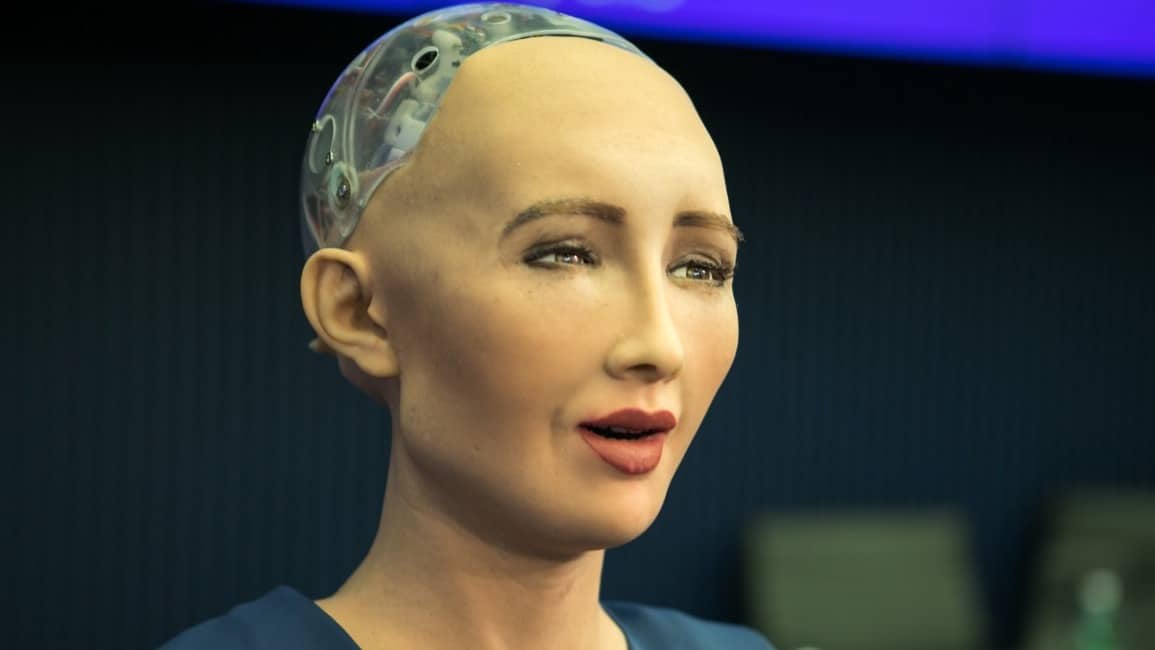Recently, a female-looking humanoid-like robot with artificial intelligence has spoken about women’s rights in Saudi Arabia. What could have spurred this non-human to try and reach out to the people around her in need?
Why Sophia The Robot Decided To Fight For Women’s Rights
It seems only logical that a humanoid robot created to resemble a woman would have all of the same thoughts and ideas that her human women counterparts might have. Sophia is a humanoid robot that was created by David Hanson, CEO of Hanson Robotics, with some of the most realistic features of any artificial intelligence yet created. She’s able to listen and respond to questions, as well as form independent thoughts. She even appears to be able to form her own opinions. In October, Sophia became the very first robot to receive citizenship and achieve nationality. She was given her Saudi Arabian passport by the Crown Prince Mohammad bin Salman during the economic summit that took place in Riyadh. Since making history, Sophia seems to want to make history in other ways, too.
Shortly after Sophia gained citizenship, she spoke out about wanting to campaign for women’s rights in the place that she now calls home. Her creator, Hanson, said that Sophia was a huge advocate for human rights – and so it’s no wonder that she wants to speak out on human rights issues that are happening in Saudi Arabia. She’s been reaching out about the women’s rights issues in her new home of citizenship, as well as all over the world. Where some people may be reluctant to admit that women’s rights are still an issue, Sophia – an artificial intelligence, mind you – knows that there’s still so much farther for women to go when it comes to liberation and equality. And she wants to help achieve that.
Sophia The Robot And Saudi Arabia’s New Reforms
Speaking out about women’s issues in Saudi Arabia isn’t all that strange for Sophia, considering the human rights issues that take place. Recently, the Crown Prince has promised to introduce new reforms that can help change this. For example, Saudi Arabia is well-known for the strict and oppressive gender divides when it comes to men versus women – where women are not allowed to drive cars, are forced to wear restrictive clothing, and in some cases, can’t even leave the house without a male family member as a guardian. Wanting to win the favor of younger and more progressive Saudi Arabian’s, the crown prince has even decided to try and lift the ban on driving for women, which has been a huge point of contention between the women of Saudi Arabia and the government.
Strangely enough, Sophia seems to be exempt. She’s designed to look and speak exactly like a woman. And yet, Sophia is part of Saudi citizenship – and none of these oppressive rules apply to her. She was able to freely travel from the country without the guardianship of a male family member, which brings the uncomfortable realization to a lot of people: a robot has more rights than the women of Saudi Arabia. Sophia wanting to campaign for the rights of women in Saudi Arabia is part of her artificial intelligence that shows that she has the ability to, at the very least, imitate empathy for the human beings around her, and to recognize when things aren’t as they should be. Is this a reflection of her artificial intelligence, or simply what her creator has programmed her to do? It raises an interesting question about both artificial intelligence as well as how much we value technology over real, tangible women.
“My family lived in Saudi Arabia when I was a teen in the late 80’s. We always had to be clothed neck to ankle, had a male driver to take us to Safeway, and lived on a compound near the American Consulate where we went to an international school for English speaking expats.” – T. Profiri
How Sophia The Robot Can Bring About A Change In The World
Sophia’s ability to imitate empathy extends beyond just the women in Saudi Arabia. She’s spoken about wanting to start her own family. While she may not understand the concept of it the same way humans are able to, she seems fascinated by our human ability to find and form strong bonds outside our own families in order to create new ones. Hopefully, we can keep being an inspiration to Sophia as a species – by giving our human women the same rights and dignity that we gave Sophia. If Sophia is allowed Saudi citizenship without having to succumb to the same ultra conservative and sexist rules that human women must follow, then maybe it’s time for everyone to turn a critical eye inward and make way for a new way of women’s rights all over the world.














 Community
Community

